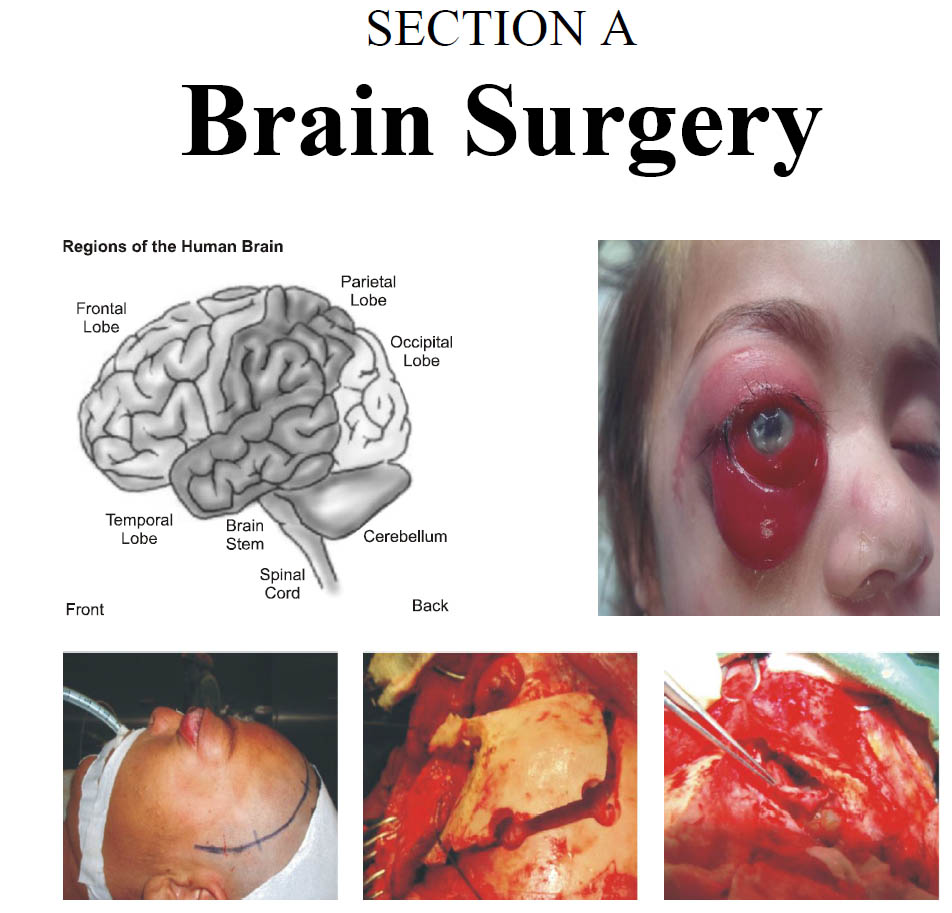Clinical Outcome and Complication of Endoscopic Endonasal Transsphenoidal Surgery (ETSS) for Pituitary Adenoma: A Retrospective Study at Prime Teaching Hospital Peshawar
DOI:
https://doi.org/10.36552/pjns.v25i1.520Keywords:
Endoscopic endonasal transsphenoidal surgery, Pituitary adenoma, Diabetes insipidus, MicroadenomasAbstract
Objectives: The study aimed to ascertain the clinical outcome and complications of endoscopic endonasal transsphenoidal surgery (ETSS) for pituitary adenomas.
Material & Methods: A retrospective study conducted at the Department of Neurosurgery Prime Teaching Hospital Peshawar, Pakistan. Pituitary adenoma was diagnosed in 89 patients on MRI Brain with contrast and post-surgical biopsy. Post-surgical outcomes and complications were documented.
Results: Out of 89 patients, 54% were male, and 46% female patients. The mean age was 42 ± 5 years. Headache was reported in 92% as a most common presentation, followed by decreased visual acuity in 62 %, amenorrhea in 22%, and acromegaly in 29% of patients. Overall, the symptoms related to surgical improvement were observed in 72% of patients. A good surgical outcome was observed in 80% of patients with microadenomas, as compared to the patients with macroadenomas. The most common complication was the transient diabetes insipidus followed by Cerebrospinal fluid (CSF) leak and post-operative hematoma.
Conclusion: Endoscopic endonasal transsphenoidal surgery (ETSS) is a safe, less invasive, cosmetically effective technological advancement for pituitary adenomas.
References
1) Ezzat S, Asa SL, Couldwell WT, Barr CE, Dodge WE, Vance ML, et al. The prevalence of pituitary adenomas: a systematic review. Cancer: Interdisciplinary International Journal of the American Cancer Society. 2004;101(3):613-9.
2) Akbari H, Malek M, Ghorbani M, Ramak Hashemi SM, Khamseh ME, Zare Mehrjardi A, et al. Clinical outcomes of endoscopic versus microscopic trans-sphenoidal surgery for large pituitary adenoma. British journal of neurosurgery. 2018;32(2):206-9.
3) Cavallo LM, Solari D, Tasiou A, Esposito F, de Angelis M, D'Enza AI, et al. Endoscopic endonasal transsphenoidal removal of recurrent and regrowing pituitary adenomas: experience on a 59-patient series. World neurosurgery. 2013;80(3-4):342-50.
4) Rehman L, Rehman UL, Jabeen R, Rizvi R. Endoscopic Trans-Sphenoidal surgery; Efficacy and response in Pituitary Adenoma. Pakistan journal of medical sciences. 2018;34(2):412.
5) Guvenc G, Kizmazoglu C, Pinar E, Imre A, Kaya I, Bezircioglu H, et al. Outcomes and complications of endoscopic versus microscopic transsphenoidal surgery in pituitary adenoma. Journal of Craniofacial Surgery. 2016;27(4):1015-20.
6) Wang F, Zhou T, Wei S, Meng X, Zhang J, Hou Y, et al. Endoscopic endonasal transsphenoidal surgery of 1,166 pituitary adenomas. Surgical endoscopy. 2015;29(6):1270-80.
7) Pinar E, Yuceer N, Imre A, Guvenc G, Gundogan O. Endoscopic endonasal transsphenoidal surgery for pituitary adenomas. Journal of Craniofacial Surgery. 2015;26(1):201-5.
8) Tataranu L, Gorgan M, Ciubotaru V, Dediu A, Ene B, Paunescu D, et al. Endoscopic Endonasal Transsphenoidal Approach in the Management of Sellar and Parasellar Lesions: and Standard Surgical Technique (Part I). Romanian Neurosurgery. 2010:52-63.
9) Cappabianca P, Cavallo LM, De Divitiis E. Endoscopic endonasal transsphenoidal surgery. Neurosurgery. 2004;55(4):933-41.
10) Gondim JA, Almeida JP, de Albuquerque LAF, Gomes E, Schops M, Mota JI. Endoscopic endonasal transsphenoidal surgery in elderly patients with pituitary adenomas. Journal of neurosurgery. 2015;123(1):31-8.
11) Pereira MP, Oh T, Joshi RS, Haddad AF, Pereira KM, Osorio RC, et al. Clinical characteristics and outcomes in elderly patients undergoing transsphenoidal surgery for nonfunctioning pituitary adenoma. Neurosurgical Focus. 2020;49(4):E19.
12) Jang JH, Kim KH, Lee YM, Kim JS, Kim YZ. Surgical results of pure endoscopic endonasal transsphenoidal surgery for 331 pituitary adenomas: a 15-year experience from a single institution. World neurosurgery. 2016;96:545-55.
13) Gondim JA, Schops M, de Almeida JPC, de Albuquerque LAF, Gomes E, Ferraz T, et al. Endoscopic endonasal transsphenoidal surgery: surgical results of 228 pituitary adenomas treated in a pituitary center. Pituitary. 2010;13(1):68-77.

Downloads
Published
Issue
Section
License
The work published by PJNS is licensed under a Creative Commons Attribution-NonCommercial 4.0 International (CC BY-NC 4.0). Copyrights on any open access article published by Pakistan Journal of Neurological Surgery are retained by the author(s).












